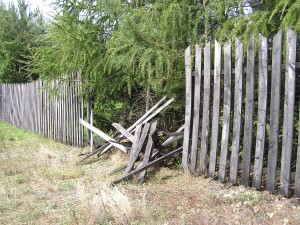 Can I Sue My Neighbor?
Can I Sue My Neighbor?
Do you have a problem with your neighbor? Do you want to sue your neighbor? It may or may not be in your best interest to file a lawsuit against your neighbor.
A legal action between neighbors is incredibly stressful and should be considered as a last resort. Lawsuits between neighbors create stress and a negative living environment that can last for years. During a lawsuit, and in the years afterward, you and your neighbor will still be living next to each other. With this in mind, the attorneys at Jones & Devoy will act on your behalf to reach a settlement agreement with your neighbor, without having to go to court.
Common issues between neighbors include:
- Boundary line disputes
- Fences
- Trees
- Construction on your neighbor’s property which damages your property
- Water runoff from your neighbor’s land which damages your property
- Any use of the land by your neighbor that interferes with your own enjoyment of your property. Common examples are continuous noise or odors from your neighbor’s property which can be seen or smelled on your land.
- Parking space dispute
Condominium Owners and Neighbor Disputes
Condominium owners face a unique situation when it comes to dealing with neighbor disputes. Before any action can be taken, an attorney should review the CC&R’s of your Homeowners Association to determine if your neighbor has violated the CC&R’s. If so, the Homeowners Association may take action on your behalf to solve the problem. If they do not, our attorneys are experienced in advocating on your behalf to get the Association to take action.
Regardless of the actions of your Homeowner’s Association, your neighbor’s actions could be in violation of the law. Each case is different. Contact our office to discuss your case and receive a free case evaulation.
Remedies Available For Disputes Between Neighbors
There are three primary remedies available in lawsuits between neighbors:
- Injunction: an injunction is simply a court order telling someone what to do. For example, if your neighbor is building a shed on your property, the court can issue an order for the construction to stop. The length of an injunction ranges from 48 hours to permanent. To determine which one is best for your situation, consult with one of our Bay Area Property Law Attorneys.
- Financial Compensation: the amount of any financial compensation you may receive will depend on the exact harm that has occured to your property. For example, if your neighbor has been playing loud music in the night, it would be difficult to obtain financial compensation. In this particular case, an injunction may be a more suitable solution. However, if your neighbor has constructed a flag pole, and the flag pole falls onto your garage, you may be entitled to recover the amount it will cost to fix the garage.
- Restraining Order: If the behavior of your neighbor is threatening in some manner, then a restraining order may be necessary. This commonly occurs when the acts of the neighbor may cause harm to young children or another member of the household.
To determine if an injunction, financial compensation, or a restraining order is more suitable for your neighbor dispute, contact the San Francisco Bay Area Law Office of Jones & Devoy and ask to speak with one of our Property lawyers. Jones & Devoy will act on your behalf to negotiate a settlement. Click here to email a question to one of our San Francisco Bay Area Property Attorneys.
